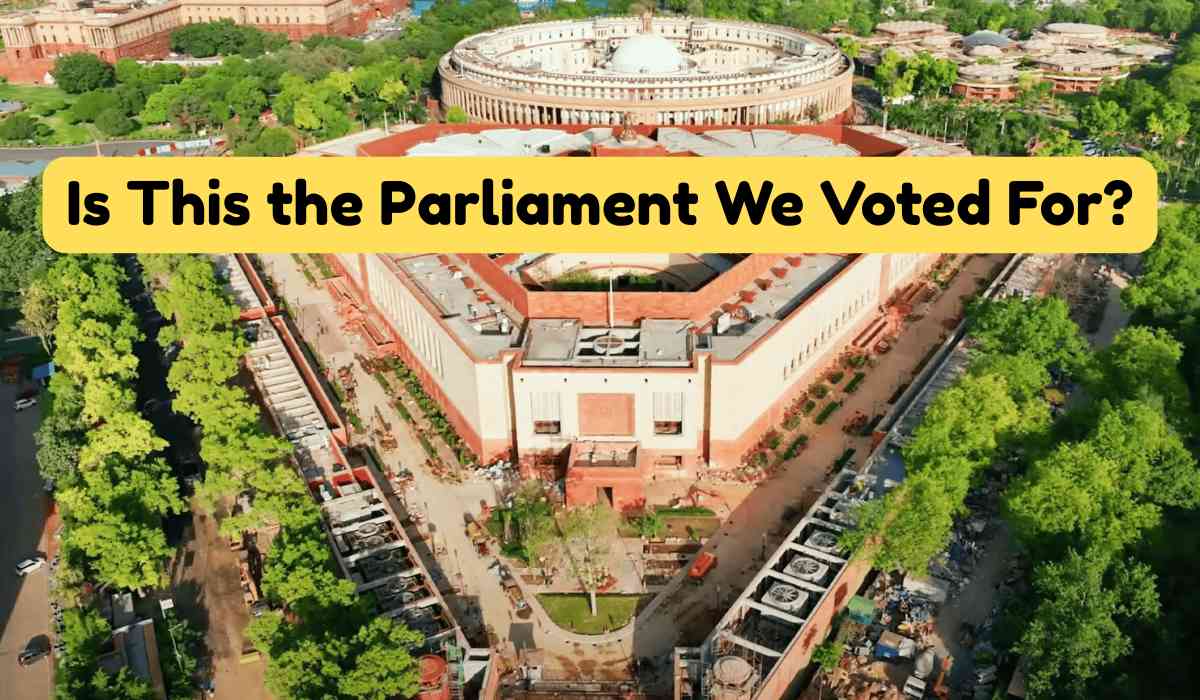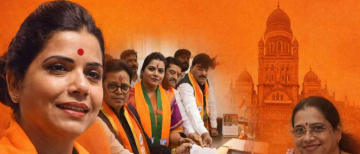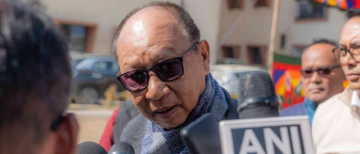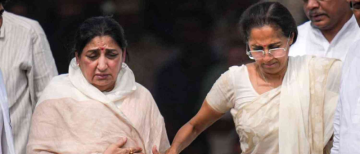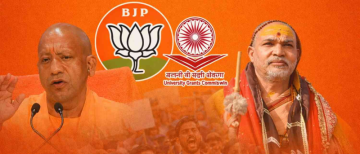One shudders to think about the fate of democracy in our country. Hasn’t this parliamentary system failed the very citizens it was designed to serve? If our Members of Parliament (MPs) cannot engage in constructive debate, and if their only contribution is daily disruptions, ego battles, and blame games, one has to ask — what is the point of spending ₹189 crore on parliamentary sessions?
For a nation that prides itself on being the world’s largest democracy, the spectacle unfolding in Parliament during the 2025 Monsoon Session has been nothing short of tragic — or perhaps, routine by now. As the session opened on July 21, the nation hoped for robust policy discussion, clear solutions, and decisive action. Instead, the halls of power reverberated with slogans, accusations, walkouts, and suspended proceedings.
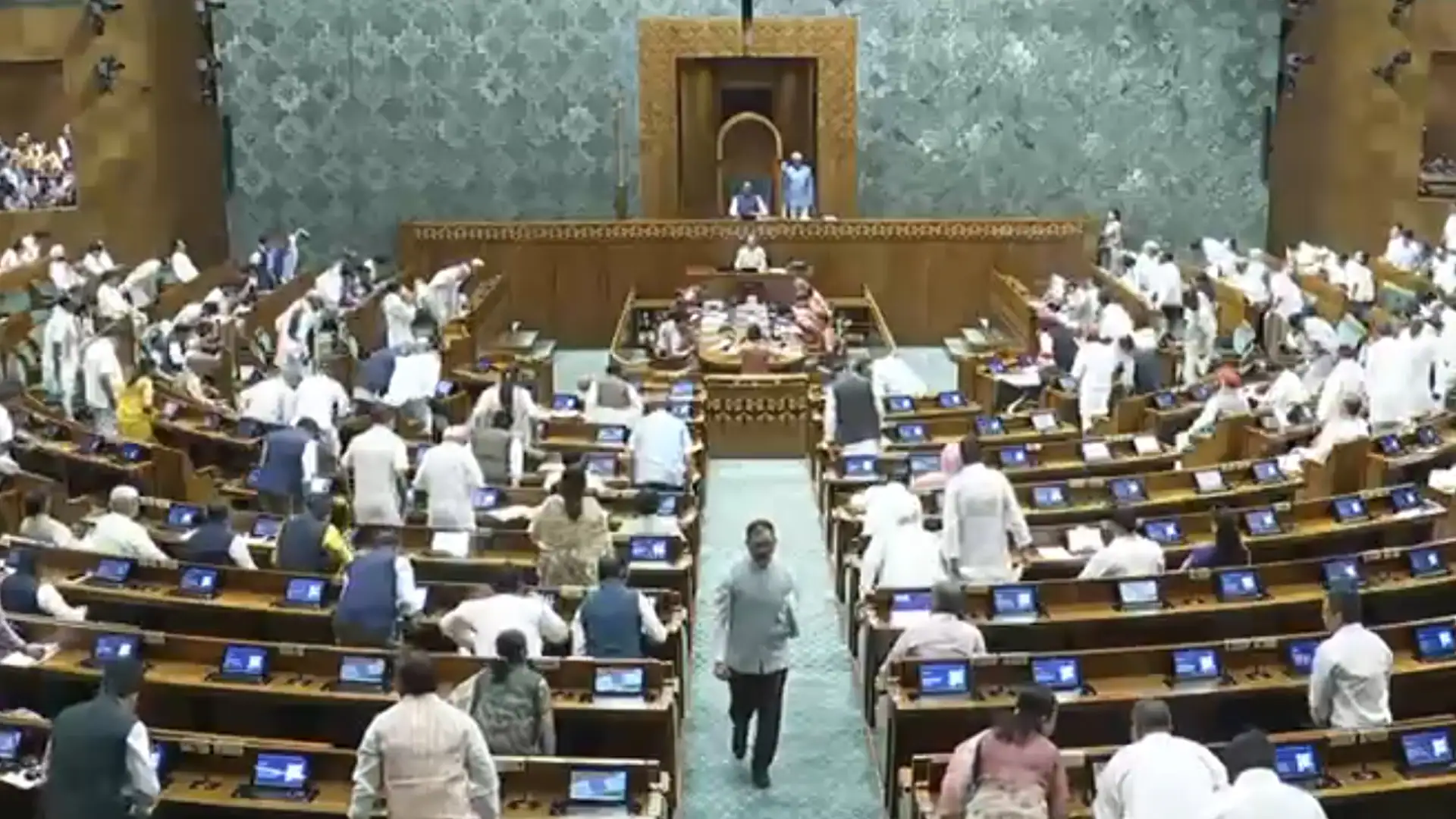
Chaos on Day 1 and 2: Operation Sindoor Sparks a Political Firestorm
The first day of the Monsoon Session descended into complete chaos. At the heart of the disruption was the demand for a debate on Operation Sindoor, a military operation whose details remain foggy, yet controversial enough to spark nationwide headlines. The uproar disrupted Question Hour and Zero Hour, prompting multiple adjournments.
Even as Defence Minister Rajnath Singh assured the House of the government’s willingness to debate the issue, the Opposition remained unmoved. In Rajya Sabha, similar scenes unfolded as Leader of the House JP Nadda reiterated that the government was open to discussion. Despite this, the Opposition insisted that Rahul Gandhi be allowed to speak, a demand that went unmet and led to intensified protests. Both Houses were adjourned for the day without conducting any meaningful business.
Rahul Gandhi's criticism that "the new norm is that the opposition will not be allowed to speak in Parliament" drew media attention, but it only added to the blame game. The larger picture remained grim: no business was transacted in Lok Sabha on Day 1. Not even a start. What followed on Day 2 was more of the same, with uproar over the Bihar voter list revision leading to adjournments until the next day. The INDIA bloc’s internal coordination issues further compounded the problem, showing not only disruption but disunity.
Meanwhile, bills of national importance such as the Manipur GST Amendment Bill, Taxation Laws Amendment Bill, and National Sports Governance Bill lay in cold storage. Ironically, even as the house burned in protest, these critical legislative pieces awaited discussion—undone and unseen.
#MonsoonSession2025
आज प्रश्नकाल में देश के किसानों से जुड़े मुद्दों, विशेषकर आपदा संकट पर चर्चा होनी है। लेकिन अगर आप चर्चा के बजाय हंगामा करने की मंशा से आ रहे हैं, तो यह सदन की गरिमा और लोकतांत्रिक परंपराओं के अनुरूप नहीं है: लोकसभा स्पीकर @ombirlakota @LokSabhaSectt pic.twitter.com/8lYu2p2PFS— SansadTV (@sansad_tv) July 22, 2025
The Real Cost of Political Theatre: ₹189 Crore of Taxpayer Money
Parliament's monsoon session, running from July 21 to August 21, 2025, is slated for 21 working days and approximately 126 hours of proceedings. That’s 7,560 minutes. Each of those minutes costs taxpayers ₹2.5 lakh, summing up to a jaw-dropping ₹189 crore. And this figure does not even include additional allowances like the ₹2,500 daily attendance benefit for each MP.
But instead of debates, legislation, or even basic accountability, the monsoon session opened with a spectacular display of disruption. The Lok Sabha adjourned multiple times on Day 1, unable to function due to the uproar caused by the Congress-led Opposition. MPs stormed into the Well of the House, shouted slogans, and effectively paralyzed the session. The Rajya Sabha fared no better—though a bill was passed, it happened in the absence of the Opposition, who had boycotted the session.
For a nation battling inflation, unemployment, crumbling infrastructure, and a healthcare system gasping for reform, these wasted minutes are more than a loss—they are an insult to the people.
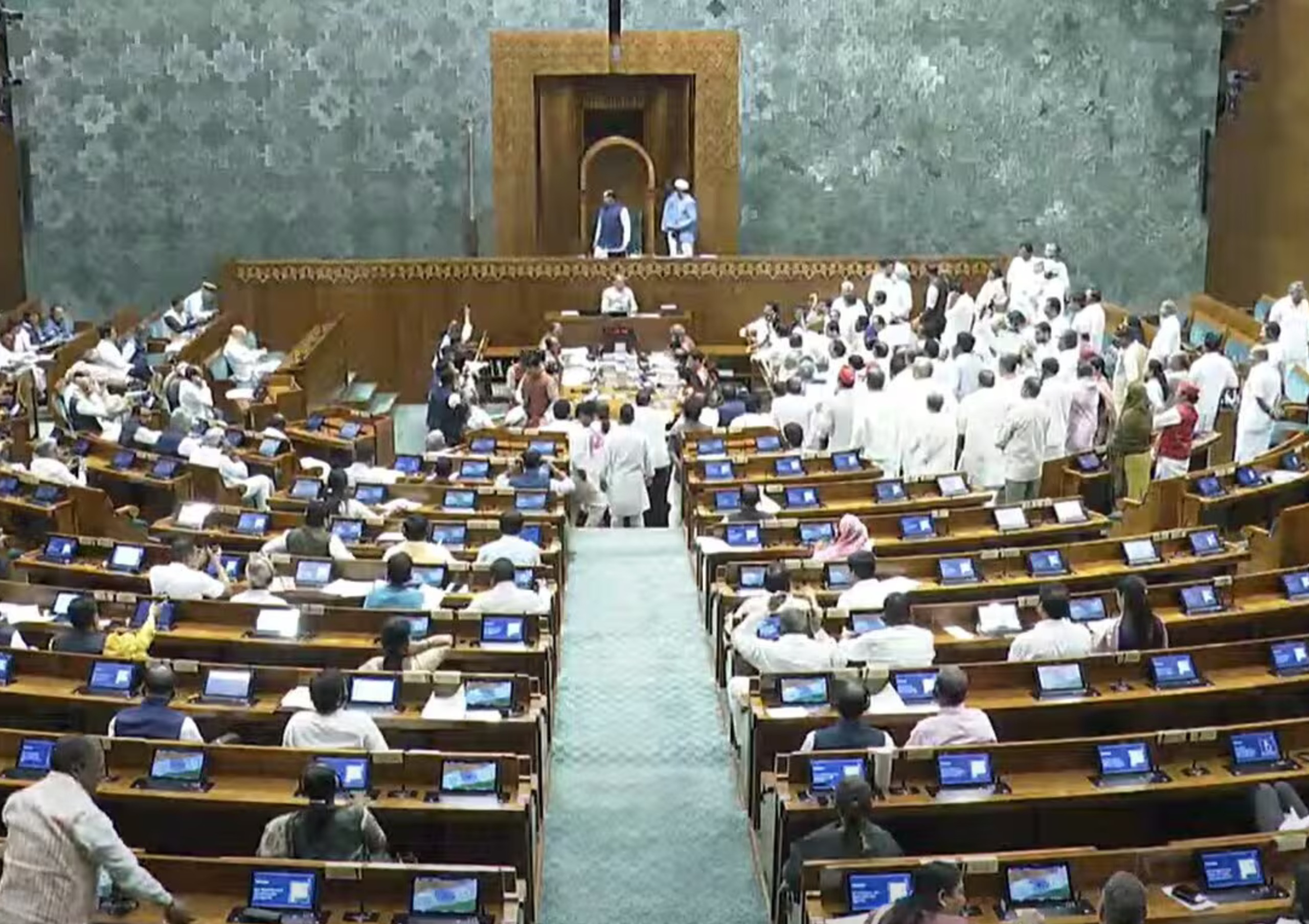
The Pattern of Disruption: A Rehearsed Script Replayed
This isn’t the first time parliamentary proceedings have been turned into political theatre. Disruption seems to be the new norm, not the exception. From Pegasus spyware claims in 2021 to the BBC documentary controversy in 2023, and from Hindenburg-Adani allegations to Operation Sindoor, it’s become standard practice to sabotage entire sessions before they even begin.
The purpose of Parliament is not protest, but policy. It is meant to deliberate, legislate, and provide a platform for national problem-solving. Instead, it has become an ego battleground. MPs across party lines appear more interested in scoring political brownie points, shifting blame, and fueling media narratives than in actual governance. As a result, the actual purpose of Parliament — legislation, policy discussion, and holding the government accountable — has been consistently sidelined.
The Rules Exist — But Who Enforces Them?
Here’s the bitter truth: our Members of Parliament have rules. A lot of them.
Under the Rules of Procedure and Conduct of Business in Lok Sabha, MPs are expected not to shout slogans, obstruct proceedings, or create disturbances. They are required to respect the Chair, maintain silence, and refrain from theatrics like tearing documents or waving flags. But what happens when the lawmakers are the lawbreakers?
MPs themselves are responsible for following these rules, and the Speaker is empowered to enforce them. But enforcement is rare, inconsistent, and weak. No MP faced disciplinary action despite the egregious scenes on Day 1 of the monsoon session. Is it then surprising that parliamentary decorum has eroded to this extent?
This scenario is akin to asking students to invigilate their own exams or drivers to issue themselves speeding tickets. The absurdity is obvious, yet in the temple of Indian democracy, it is an accepted norm.
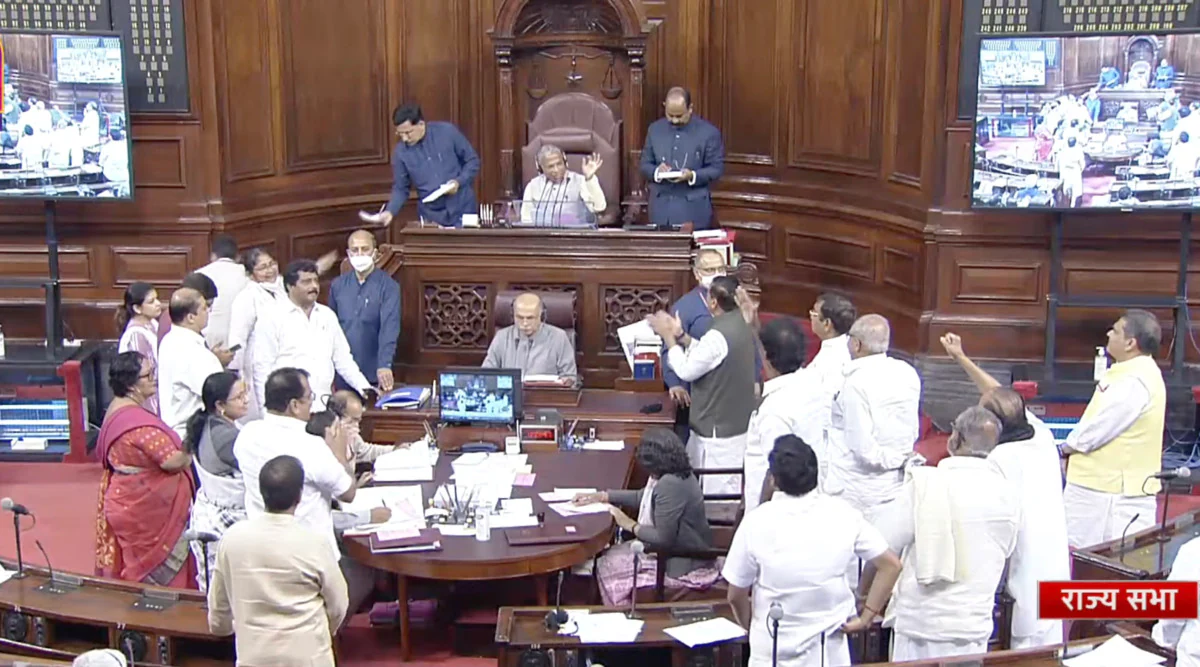
The Erosion of Parliamentary Function: Alarming Trends
The larger crisis goes beyond just noise and protests. Key data shows how Parliament is slowly losing its democratic function:
-
Parliamentary sessions are shrinking. The 17th Lok Sabha (2019-24) sat for only 55 days a year, compared to 135 days during the first Lok Sabha (1952-57).
-
Over 435 hours were lost due to disruptions during the 17th Lok Sabha alone.
-
115 MPs were suspended, marking a new low in democratic functioning.
-
Committee review is weakening. Only 16% of bills were referred to standing committees in the 17th Lok Sabha, down from 28% in the previous term.
-
Scrutiny of legislation is dwindling. Over one-third of bills passed were debated for less than an hour.
-
Quality of debates has eroded. Focus has shifted from policy and governance to entertainment controversies and social media squabbles.
-
Women’s representation is still at 15%, far below global standards like the U.S. (32%).
These are not just numbers — they represent the institutional decline of Parliament.
Are We Watching the Death of Democracy in Real-Time?
Has the Indian Parliament lost its purpose? It increasingly appears so.
The fact that important bills like the Manipur GST Amendment Bill, Taxation Laws Amendment Bill, National Sports Governance Bill, and others were listed — yet not discussed due to protests — shows a complete breakdown in legislative responsibility. The chaos over Operation Sindoor, the Bihar voter list revision, and demands for PM Modi’s presence might be politically relevant, but they must be addressed within the rules of the House, not through disruption.
Every adjournment without work is a loss for every Indian — the farmer waiting for irrigation reform, the small business owner waiting for GST relief, the unemployed graduate waiting for jobs, and the victim of violence waiting for justice.
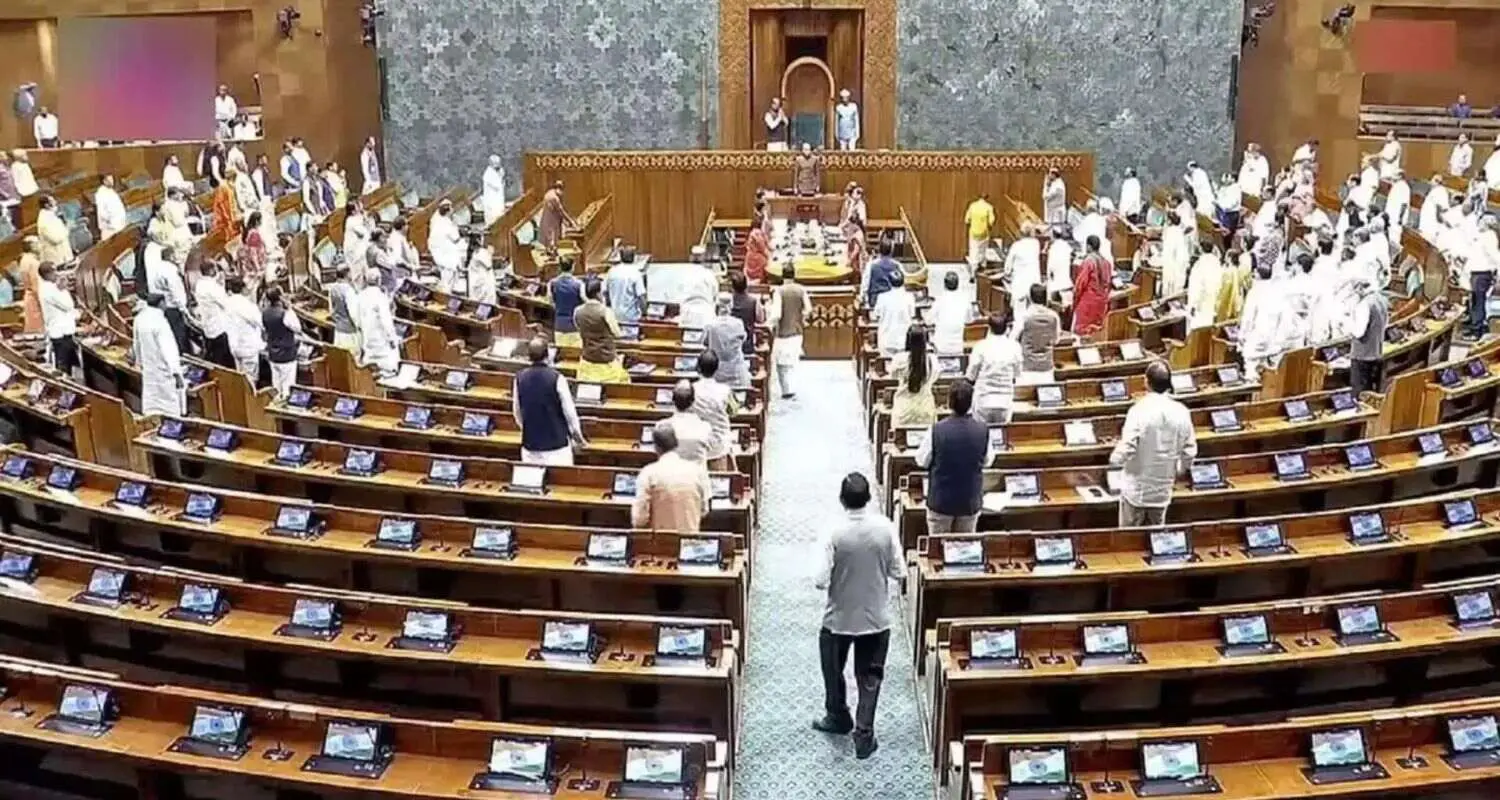
Who Suffers the Most? The Taxpayer and the Common Citizen
Let’s not forget who funds this chaos. Every MP's salary, every minute of air conditioning in the Central Hall, every parliamentary lunch, microphone, and stationary comes out of your taxes. It is the ordinary Indian—the job-seeking graduate, the small business owner, the farmer awaiting irrigation policy—who pays the price.
We live in a nation where monsoons flood cities due to poor infrastructure, where youth unemployment remains rampant, and inflation eats into savings. Parliament should be solving these issues. Instead, it is used to amplify personal vendettas, party posturing, and power plays.
Democracy Cannot Survive Without Decorum
India’s Parliament is not a theatre. It is the sacred platform where 1.4 billion voices are supposed to find representation. But what we’re witnessing today is the opposition blames the government, the government blames the opposition, and the Speaker sits in silence—while ₹189 crore burns away, quite literally.
This is not what democracy was meant to be. It was meant to be a platform for problem-solving, not problem-creating. A forum for public service, not personal theatre.
It is time for serious reform. Both ruling and opposition parties must rise above ego, rhetoric, and propaganda. The Speaker must act decisively, enforcing rules to protect the dignity of the House. Citizens, too, must hold their representatives accountable — not just through votes, but through persistent civic pressure and awareness.
As Mahatma Gandhi once said, “Be the change you wish to see in the world.” It’s time our lawmakers lived by those words — not just quote them in speeches.
Until then, the fate of our democracy remains in peril, and one must ask — is this truly the Parliament the Constitution envisioned?
Views expressed in the above piece are personal and solely those of the author. They do not necessarily reflect Vygr’s views.
With inputs from agencies
Image Source: Multiple agencies
© Copyright 2025. All Rights Reserved Powered by Vygr Media.

